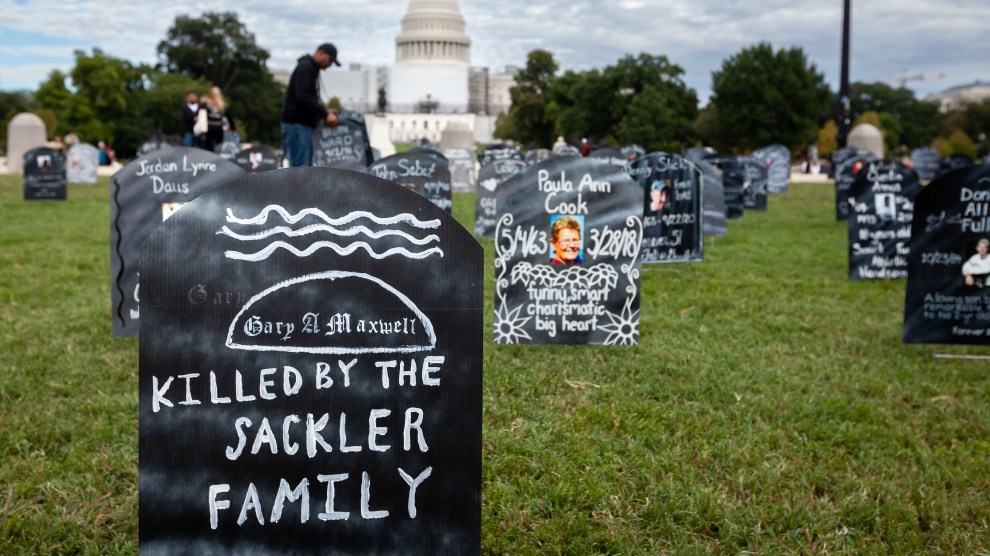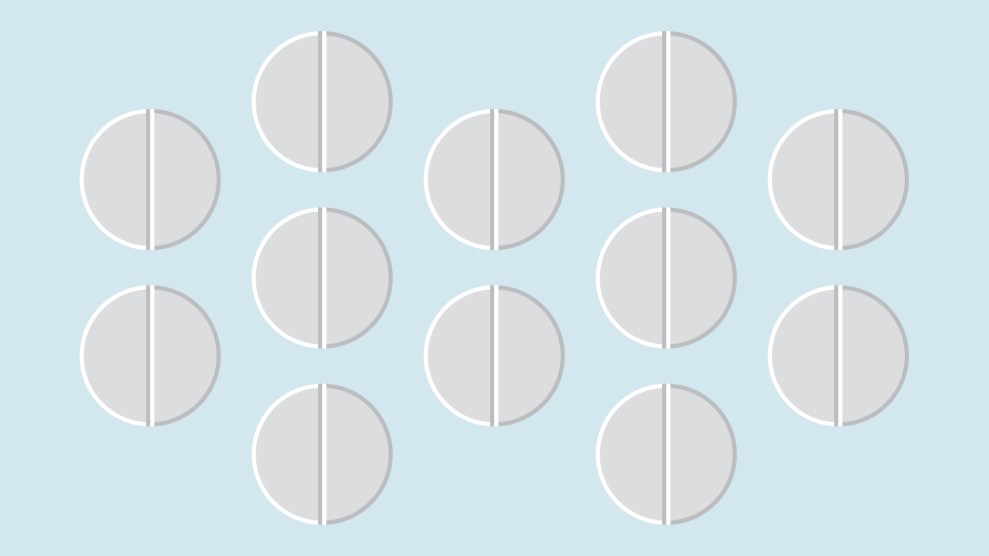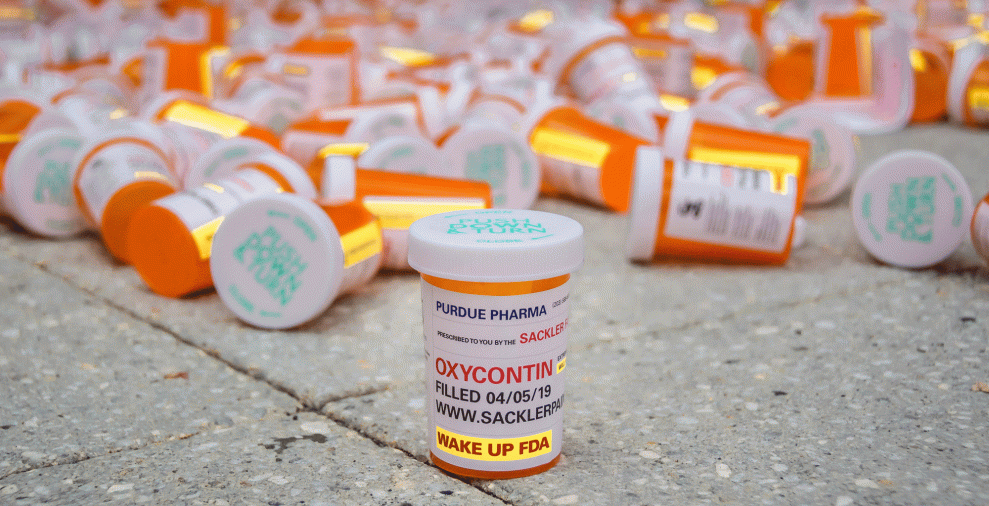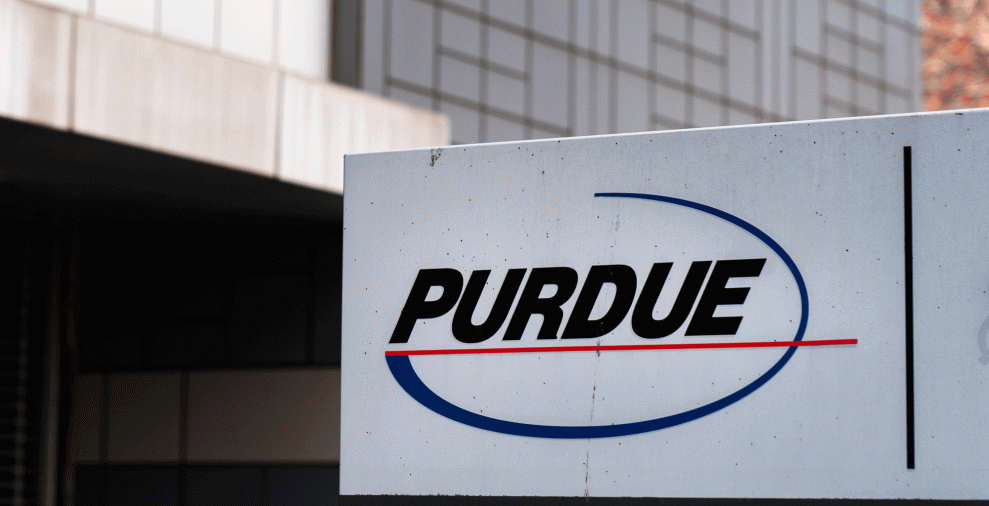
Allison Bailey/NurPhoto via Zuma
Will the Sackler family finally begin paying out a multibillion settlement to cities, states, tribes, and individuals reeling from the opioid epidemic? The Supreme Court will hear oral arguments on Monday in a case that could decide. And Americans who lost loved ones to overdoses are not all in agreement on the desired outcome, partly because of a big catch: The Sacklers, whose company Purdue Pharma aggressively marketed OxyContin since the 1990s, have only agreed to pay if they are shielded from future lawsuits. The Supreme Court must rule on whether the law allows such a deal.
The case has created a tough situation for families who are eager for the funds to be distributed for drug treatment and other services, but who also want the Sacklers to face justice for the company’s role peddling addictive prescriptions. “NO ONE wants to see the Sacklers pay the full price more than me,” Cheryl Juaire, a grieving parent from Massachusetts who supports the payout, wrote to the court, according to the New York Times: “I lost TWO SONS as a result of their actions. But the only thing that will make my personal tragedy worse is to know that others will suffer the way I do every day.” Though a majority of claimants voted in favor of the settlement, a branch of the Justice Department objected to the liability immunity, asking the Supreme Court to weigh in. Solicitor General Elizabeth Prelogar, who is representing the Justice Department, says the settlement agreement allows the Sacklers to “shield billions of dollars of their fortune while extinguishing, without payment, claims alleging trillions of dollars in damages.” Ed Bisch, who lost his son to an overdose in 2001 and founded a group called Relatives Against Purdue Pharma, told the Washington Post he’s rooting for the Justice Department: “No amount of money is worth giving the architects of the opioid epidemic civil immunity for what they have done.”
The Supreme Court will not decide whether the settlement is beneficial for families, but whether it’s legal. Purdue filed for Chapter 1 bankruptcy in 2019, about five years after the company started facing lawsuits for its role in the opioid epidemic, and businesses often include a liability shield during bankruptcy proceedings. But in this case, that liability shield protects the Sacklers—a move that the Justice Department argues is illegal, since the Sacklers did not file for bankruptcy themselves. In 2021, a US district court agreed, ruling that family members who are not part of the bankruptcy proceedings cannot be protected from future claims. If the Supreme Court overturns that ruling, it could have broader ramifications for bankruptcy law in the United States. According to the Post, similar questions of liability are often key in high-profile bankruptcy settlements, such as the one that Boy Scouts of America reached with thousands of people who claimed to have been sexually abused.
Purdue argues that because the settlement draws from the Sacklers’ personal wealth, the liability protection should apply to them too and not just to the company. “Countless lives will be helped—and literally saved—by the billions of dollars that will flow to communities nationwide under the plan,” lawyer Gregory Garre, who is representing Purdue, wrote to the court. The Sacklers have agreed to pay up to $6 billion, but Purdue has estimated the settlement overall is worth up to $10 billion, given the extra value of addiction treatment and overdose reversal drugs the company would distribute. The deal would also require the company to reorganize into a new business, Knoa Pharma, that would work to fight the opioid crisis. (The Sacklers say the $6 billion settlement represents most of the family’s profit from the drug between 2008 and 2017; their total fortune from OxyContin is not known, the Times reports.)
While the Supreme Court hears the evidence, the epidemic continues to claim lives. Since 2000, more than 300,000 people have died in the United States because of prescription opioid overdoses, according to the Centers for Disease Control and Prevention. More than 110,000 died of drug overdoses in 2022, the vast majority from fentanyl and other synthetic opioids. Some supporters of the Sacklers’ settlement deal point out that even if the payouts bar civil lawsuits, the Justice Department can still pursue criminal prosecution: Purdue pleaded guilty in 2020 to multiple federal felonies related to its marketing of the addictive painkillers.
But Bisch, of Relatives Against Purdue Pharma, still isn’t convinced the deal is a good one. He told the Washington Post that he and other opponents of the settlement will rally outside the court. He plans to arrive at 5 a.m. to get a seat for the hearing.

















